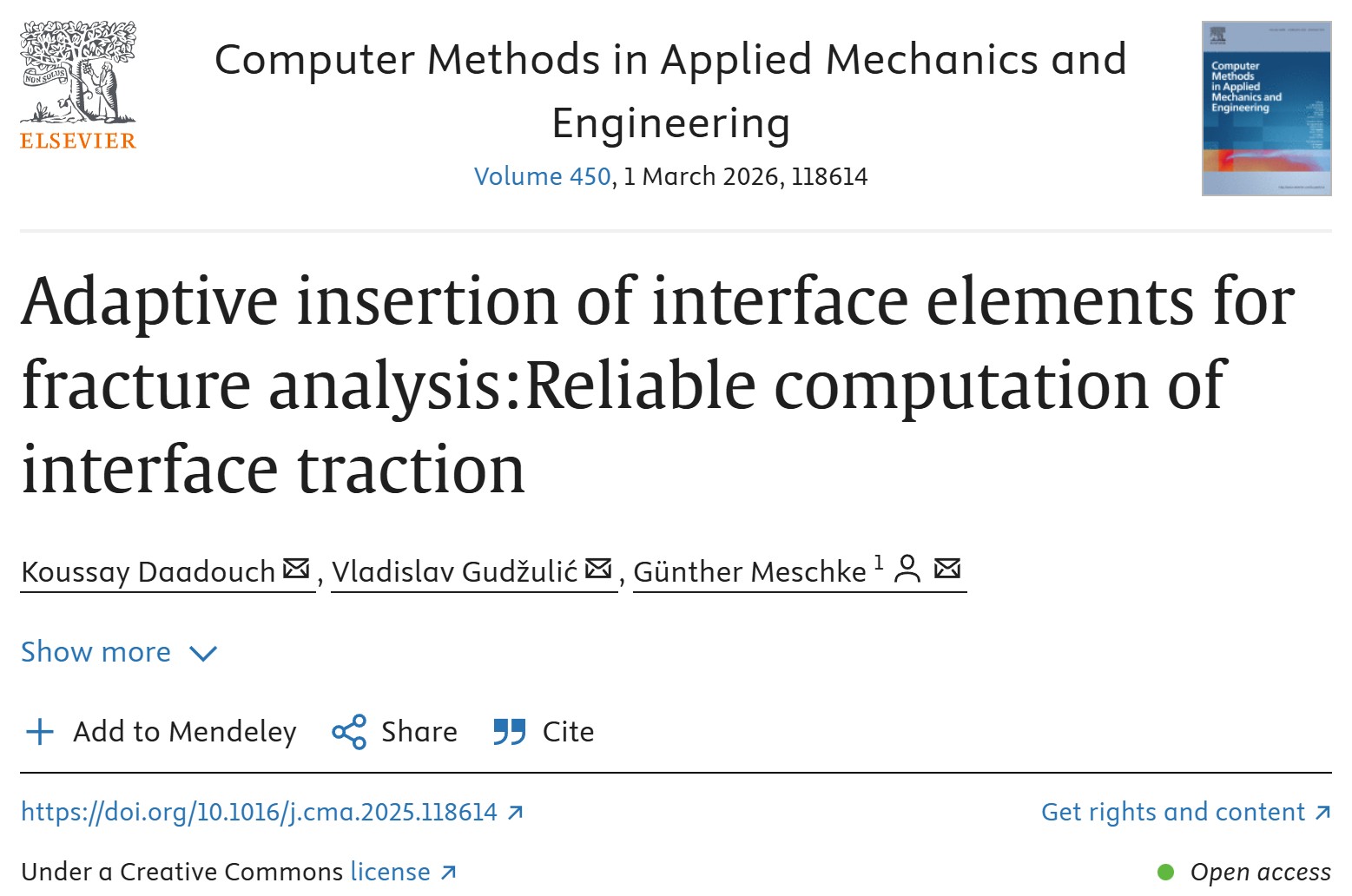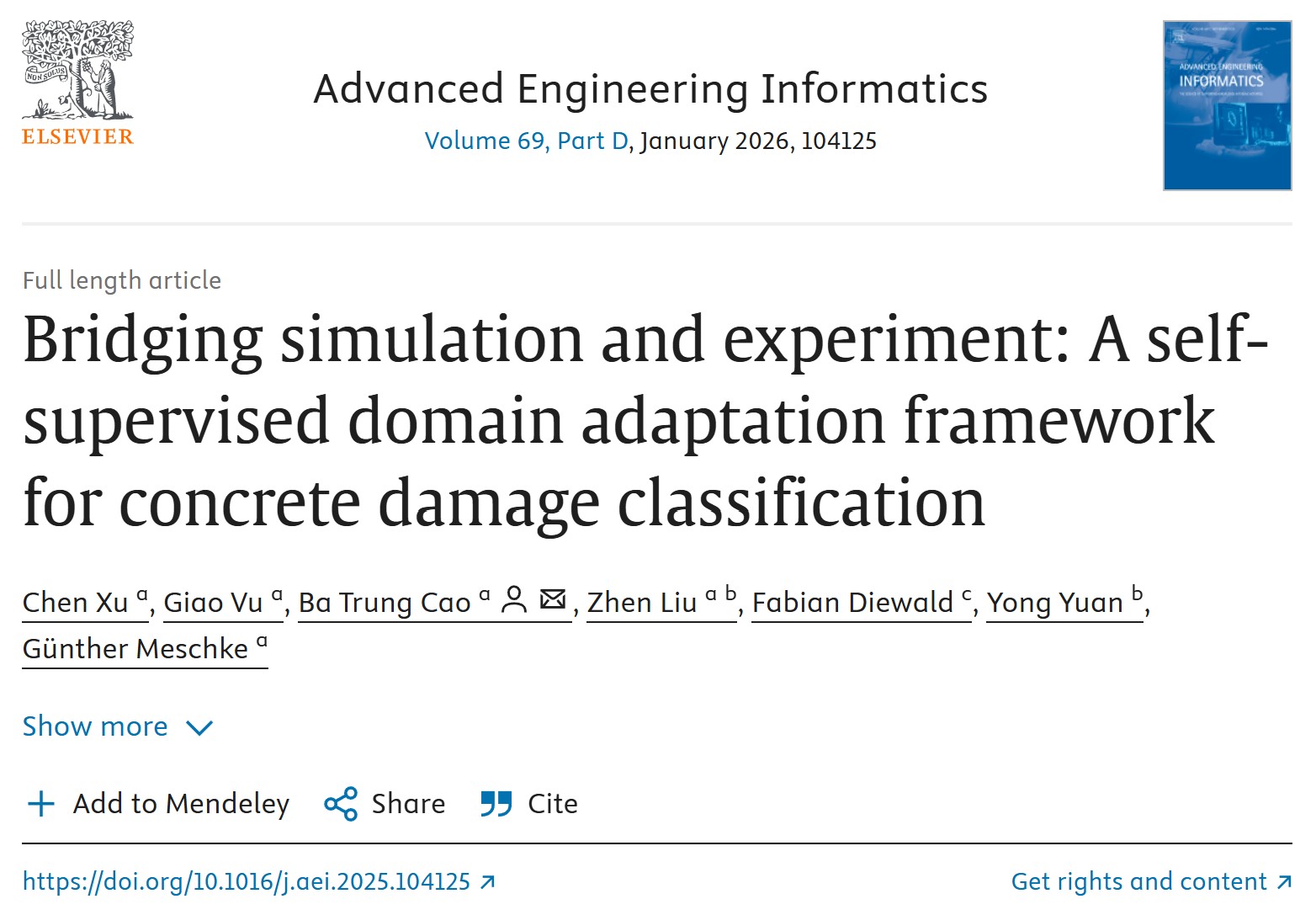Chen
Xu, Giao
Vu, Ba Trung
Cao, Zhen
Liu, Fabian Diewald, Yong Yuan, and Günther
Meschke are the authors of the newly published article entitled "Bridging simulation and experiment: A self-supervised domain adaptation framework for concrete damage classification". It has been published by Elsevier in the journal Advanced Engineering Informatics.
Abstract:
Reliable assessment of concrete degradation is critical for ensuring the safety and longevity of engineering structures. This study proposes a self-supervised domain adaptation framework for robust concrete damage classification using coda wave signals. To support this framework, an advanced virtual testing platform is developed, which combines multiscale modeling of concrete degradation with ultrasonic wave propagation simulations. This setup enables the generation of large-scale labeled synthetic data under controlled conditions, reducing the dependency on costly and time-consuming experimental labeling. However, neural networks trained solely on simulated data often suffer from degraded performance when applied to experimental data due to domain shifts. To bridge this domain gap, the proposed framework integrates domain adversarial training, minimum class confusion loss, and the Bootstrap Your Own Latent (BYOL) strategy. These components work jointly to facilitate effective knowledge transfer from the labeled simulation domain to the unlabeled experimental domain, leading to accurate and reliable damage classification in concrete. Extensive experiments demonstrate that the proposed method achieves notable performance gains, reaching an accuracy of 0.7762 and a macro F1 score of 0.7713, outperforming both the plain 1D CNN baseline (accuracy: 0.5867; macro F1: 0.5832) as well as six representative domain adaptation techniques. Moreover, the method exhibits high robustness across independent runs and adds only minimal training overhead (about two additional minutes). These findings underscore the practical potential of the proposed simulation-driven and label-efficient framework for real-world structural health monitoring applications.
Get a free access with this
authors' share link (until January 12, 2026) or try this link:








